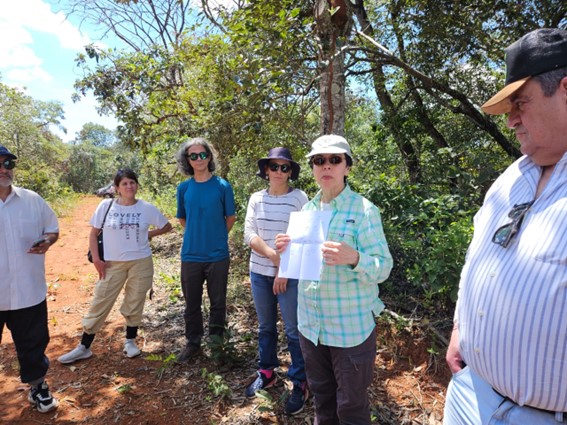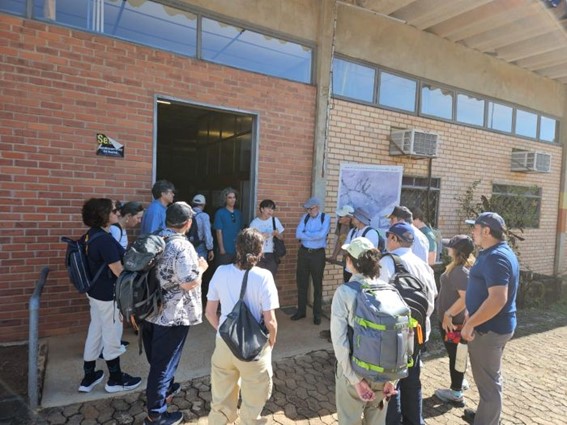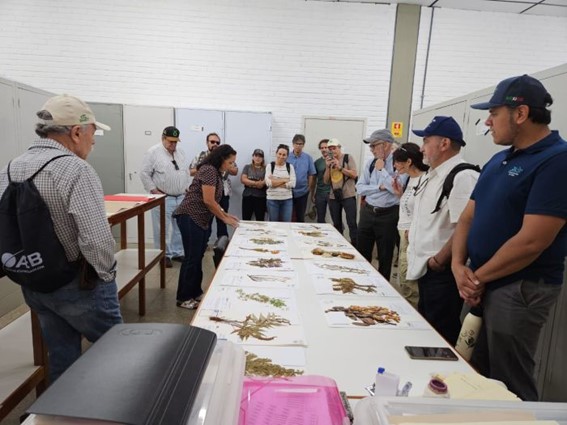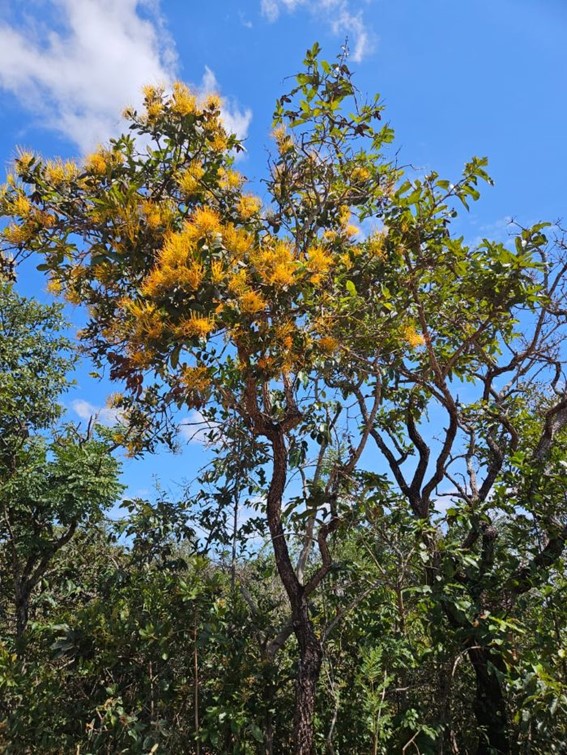RECOR
IBGE's ecological reserve visited by teams from CNPQ and Ibero-American Network of Biodiversity Observatories
March 25, 2025 10h15 AM | Last Updated: March 26, 2025 04h16 PM

The IBGE Ecological Reserve (RECOR) was visited, last week, by the President of the National Council for Scientific and Technological Development - CNPq , Ricardo Magnus Osório Galvão, and other 15 researchers from the Red Iberomericana de Observatorios de Biodiversidad y Cambio Global. The group was received by biologist and professor from the University of Brasília (UnB), Mercedes Maria da Cunha Bustamante, as part of the event promoted by the postgraduate program in Ecology. During the Symposium Dialogues in Biodiversity: experiences in the Ibero-American region, there were presentations by reasearchers and a visit to the IBGE Ecological Reserve in order to provide the group with the experiences of a field activity.
The main purpose of the visit was to show the Reserve as one of the main sites for ecological research in the Cerrado Biome. researchers from different countries, such as Portugal, Spain, Chile, Paraguay, Argentina, Mexico, among others, were delighted to see the infrastructure kept by the IBGE. According to the manager of the Reserve, Mauro Ribeiro, RECOR, since the 1980's, has been the setting for important surveys about the Cerrado, such as the Long-Duration Ecological Research Project (PELD), which has allowed researchers from different parts of the country and from a number of countries to study the biome.
PELD is an umbrella for sicentific, postgraduate and undergraduate projects. The fire project stands out because, within RECOR, the effect of fire on the cerrado can be studied into major sections, with different methods applied for area burning and control, thus adding to research about the Brazilian cerrado.
First, the group visited the facilities (an Exhibit of the Collection on Biodiversity and the IBGE Herbarium), and learned from explanations by the Reserve manager, Marina Fonseca, and the servant and researcher Frederico Takahashi. Afterwards, the group was taken to the field to see the sections studied by PELD and the Fire Project. The idea is to enable to IBGE Ecological Reserve to contribute to and becoma a research site within Red Iberomericana de Observatorios de Biodiversidad y Cambio Global.






















